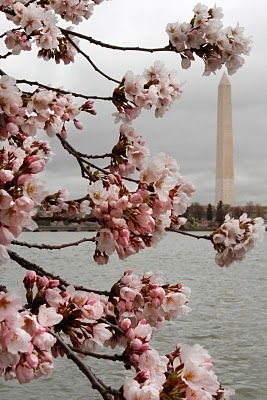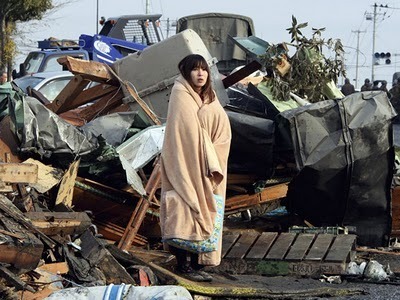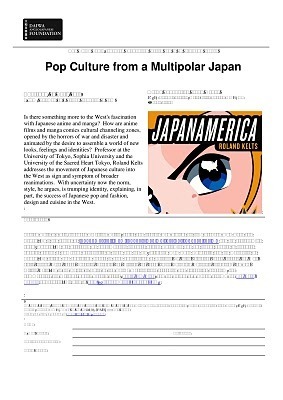Roland Kelts's Blog, page 75
March 25, 2011
Sakura Matsuri (cherry blossom fest) in DC

March 22, 2011
Japan: The Imagination of Disaster on Studio 360
 Friend and scholar Bill Tsutsui, author of
Godzilla on My Mind
, and I speak with
Studio 360
's Kurt Andersen about Japan's post-apocalyptic sensibility in the wake of the quake and wave. On WNYC / NPR:
Friend and scholar Bill Tsutsui, author of
Godzilla on My Mind
, and I speak with
Studio 360
's Kurt Andersen about Japan's post-apocalyptic sensibility in the wake of the quake and wave. On WNYC / NPR:Monkey Business International Launch Events
MONKEY BUSINESS:
New Writing from Japan
LAUNCH EVENTS
April 30
Crossing Boundaries: Contemporary Asian Fiction in Translation(part of the PEN World Voices Festival)Asia Society, 725 Park Avenue2:30–4:00 p.m.Hiromi Kawakami and Rebecca Brown, moderated by Motoyuki ShibataMinoru Ozawa and Joshua Beckman, moderated by Ted GoossenMay 1Monkey Business Launch Party at BookCourt163 Court Street, Brooklyn7:00 p.m.Join us for an evening of readings and celebrating with Monkey Business editors and contributors!
May 3Contemporary Japanese Storytelling: The Verbal and the VisualJapan Society, 333 East 47th Street6:30-8:00 p.m.Hideo Furukawa and Steve Erickson, co-moderated by Motoyuki Shibata and Roland Kelts
For more information about Monkey Business and to order a copy, visit www.apublicspace.org
March 21, 2011
Japanamerica in Baltimore this Thursday, 3/24
I'll be giving two talks in Baltimore this Thursday, March 24--one at 10 a.m., the second at 2:30 p.m.
Details are here (and on the poster above).
Books will be available and signings will follow. If you are in the area, please stop by and say hello. We've plenty to talk about.
March 20, 2011
Pacific Rim Diary # 2
 [tokyo, 3-11]
[tokyo, 3-11]My second entry for the "Pacific Rim Diary" segment of The Madeleine Brand Show on KPCC/NPR is about watching devastation from afar as two hometown skylines go up in smoke and down in tragedy, and the prescience of Hayao Miyazaki's PONYO--recorded in the show's home studio in Los Angeles:
Pacific Rim Diaries: an expat's view on the Japan earthquake
 [new york city, 9-11]
[new york city, 9-11]
March 14, 2011
after the quakes

This column was supposed to be about recent upheavals in the manga industry that have permanently rearranged the publishing landscape in Japan and overseas. A few weeks ago, Kodansha, Japan's largest publisher and owner of licenses for Akira, Ghost in the Shell and other internationally renowned anime titles, purchased New York-based Vertical, Inc., the decade-old indie publisher of Japan-related literature, manga and nonfiction works, in a joint acquisition with Dai Nippon Printing.
Vertical has become especially notable for producing elegant paperback editions of lesser known titles by Osamu Tezuka, the father of modern manga and anime, such as Ayako and Ode to Kirihito, in addition to his popular Black Jack series. Given that Kodansha ended its licensing agreement with Del Rey Manga late last year, its Vertical buyout is seen as another step the company's move toward more 'hands-on' management of the US manga market.
But the company wasn't finished. One week after its purchase of Vertical, Kodansha suddenly announced that next month would see the end of its 48 year-old English-language imprint, Kodansha International—a move that was apparently unexpected by the imprint's authors and, by some accounts, its own staff and editors. Kodansha International has translated and published numerous works of Japanese literature and nonfiction, including elaborately illustrated guides to Japanese baths and sake. It has also become a crucial purveyor of books delineating Japanese popular culture to non-Japanese fans, scholars and general readers.
In 1963, Kodansha International published the seminal Manga! Manga!: The World of Japanese Comics, Frederik L. Schodt's capacious introduction to the history, artists and aesthetics of the uniquely Japanese form of art and entertainment. The book is now a consecrated classic—and remains invaluable to this writer. Recent years have seen a spate of richly illustrated, pocket-sized paperbacks from Kodansha International devoted to Japan's pop culture niches, such as Shoko Ueda and Brian Aschcraft's Japanese Schoolgirl Confidential, Patrick W. Galbraith's The Otaku Encyclopedia, and Hiroko Yoda and Matt Alt's Ninja Attack! and Yokai Attack! guidebooks. The lavishly designed hardcover editions of Plastic Culture by Woodrow Phoenix and Loving the Machine by Tim Hornyak are equally useful for non-Japanese readers keen for a broader understanding of the nation's unique approach to the worlds of toys and robots, respectively.
Kodansha says it will focus instead on its North American operations via its regional presences, Kodansha USA and the newly acquired Vertical, Inc. Meanwhile, as of this writing, the fate of the above titles remains precarious.
This column was also supposed to be about the clash of wills taking place in Japan next weekend, March 26 and 27, when Tokyo Governor Shintaro Ishihara's Tokyo International Anime Fair (TAF) will take place simultaneously with its new competitor—the Anime Contents Expo (ACE), launched by major anime and manga companies to protest the recently passed bill 156, seen by many as a crude stab at censorship. Overseas professionals trekking to Tokyo for the weekend tell me they will either boycot TAF in solidarity with the artists or frantically shuttle between TAF in Odaiba and ACE in Chiba to report on both.
I probably don't need to explain to you what this column is really about, but I can't help it. As I write, the TV images in my Oregon hotel room are relentless: the quake, the wave, the fires; the smoke, debris and bodies. The power plants.
This is about the evening of March 10, after I gave two talks on Japan's popular and contemporary culture to students, faculty and others at the University of Oregon. A voice message was recorded on my mobile phone that evening during dinner with my hosts—a message I wouldn't hear until much later, since work, wine and jet lag had effectively rendered me numb. The call was made during the afternoon of March 11, Japan-time, and it was from Tokyo. And the unsteady voice, barely recognizable and almost inaudible at times, described a swaying building, books and kitchen utensils strewn across the floor, a broken lamp and a broken clock.
"But I'm alive," it concluded, trembling. "I'm still here."
March 11, 2011
In Oregon
Many others less fortunate.
March 10, 2011
Live in London, 14 April
March 9, 2011
Japanamerican jumble
TOKYO — A top American diplomat has been removed from his post after stirring outrage in Japan for reportedly belittling Okinawans, a State Department official said on Thursday.
The official, Assistant Secretary of State Kurt M. Campbell, also said the United States ambassador to Japan, John V. Roos, flew to Okinawa on Thursday to apologize in person to the governor of the island, which hosts about half of the 50,000 American military personnel in Japan.
According to Japanese press reports, the diplomat, Kevin K. Maher, told American university students in December that the Okinawans were "masters of manipulation and distortion." Mr. Maher, who was head of the State Department's office of Japan affairs, has called the media reports inaccurate and incomplete.
While it was unclear why it took so long for the comments to become public, they have become front-page news in Japan, where many people called them racist. On Thursday, ultra-nationalist groups used loudspeakers to protest in front of the United States Embassy in Tokyo.
But the most intense anger appeared in Okinawa, where there is deep resentment over the heavy United States military presence. Earlier this week, the Okinawan prefectural assembly adopted a resolution calling for a retraction and apology.
Japanese officials have expressed concern because the comments came at a sensitive time. Tokyo has been trying to persuade Okinawans to accept the relocation of the Marine Corps Air Station Futenma elsewhere on the island as part of a broader agreement that would reduce American forces on Okinawa.
Seeking to control the damage, Mr. Campbell, who is in Tokyo for two days of talks, said he repeatedly apologized to Japanese officials for misunderstandings caused by the reported remarks. He said Mr. Maher had been replaced as head of Japan affairs, although he still works for the State Department.
"We do believe that this has caused some harm," Mr. Campbell told reporters in Tokyo. The reported comments "in no way reflect the views of the government of the United States and the people of the United States."
On Thursday, Mr. Campbell met with Japan's new foreign minister, Takeaki Matsumoto, who has said that if the reports were true, the comments were "unacceptable" and "hurt the feelings of not only Okinawans but all Japanese."




